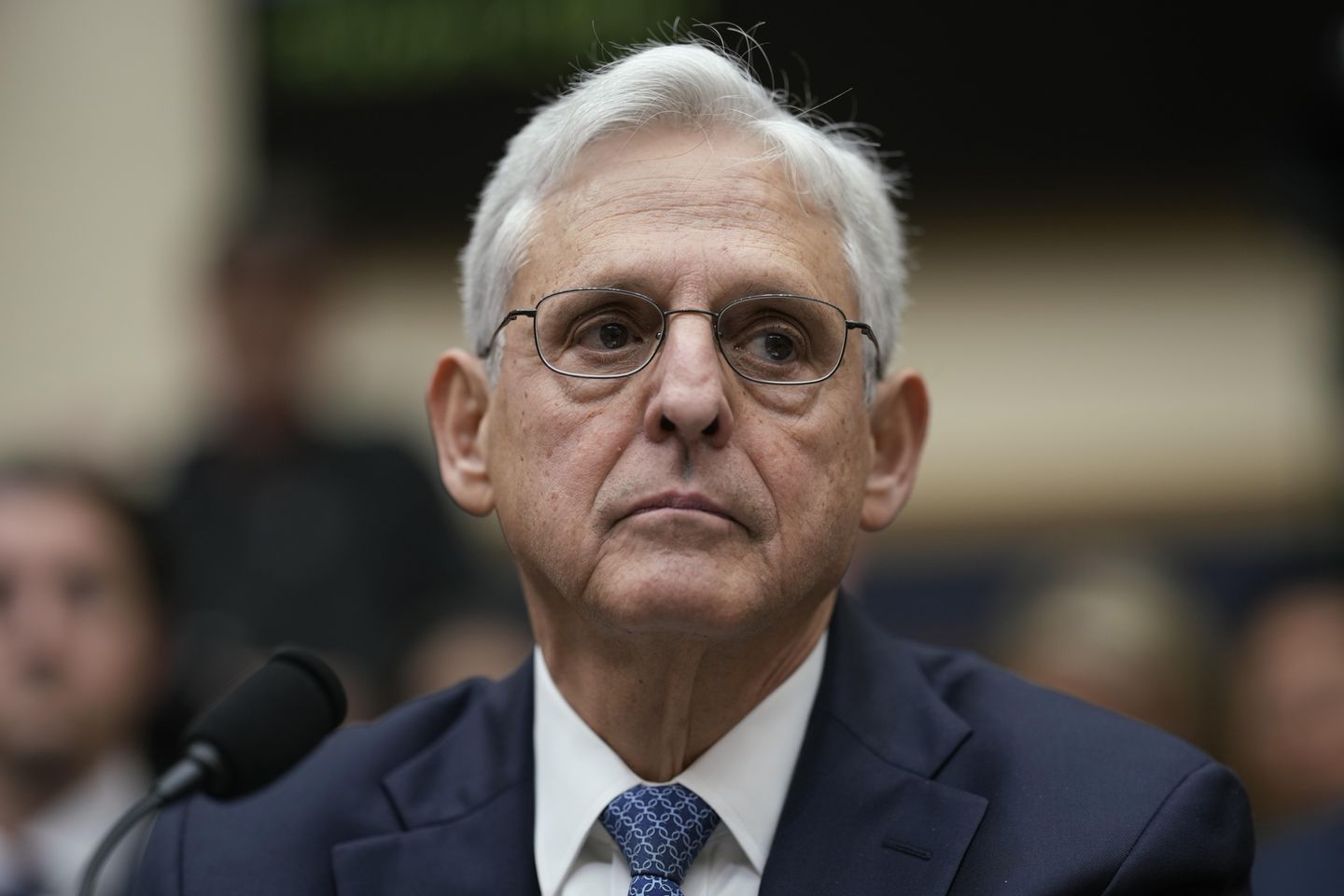
House Judiciary Committee Chairman Jim Jordan and Oversight and Accountability Committee Chairman James Comer threatened Attorney General Merrick Garland with contempt of Congress on Monday over materials that haven’t been turned over from special counsel Robert Hur’s investigation into President Biden.
In a letter to Mr. Garland, the chairmen said he provided an “insufficient production” of materials in response to a subpoena last month by Mr. Comer, Mr. Jordan and Ways and Means Committee Chairman Jason Smith, Missouri Republican. They had requested transcripts, notes, video and audio files from Mr. Hur’s investigation into Mr. Biden’s mishandling of classified documents and whether the president showed them to his ghostwriter, Mark Zwonitzer.
They wrote that if further materials aren’t provided by April 8, they will move forward with contempt proceedings.
Mr. Comer, Kentucky Republican, and Mr. Jordan, Ohio Republican, specifically said they are still waiting for the audio recordings from Mr. Hur’s interview with the president, and the audio and transcript from the special counsel’s interview with Mr. Zwonitzer. The transcript of Mr. Biden’s interview was released earlier this month.
The duo reminded Mr. Garland that the subpoena sent on Feb. 27 created “a legal obligation” on him to provide the material.
They said the Justice Department didn’t provide the documents by the due date because it was reviewing the materials for classification and confidentiality interests, but never offered them a timeline for when the review would be over.
A Justice Department spokeswoman responded to the threat by saying the department “has been extraordinarily transparent with Congress.”
“The Attorney General released Mr. Hur’s report to Congress and made no redactions or changes, the Department provided documents to Congress including a copy of the president’s interview transcript, and Mr. Hur testified before Congress for more than five hours about his investigation. Given the Department’s ongoing and extensive cooperation, we hope they will reconsider this unnecessary escalation,” the spokeswoman said.
Mr. Jordan subpoenaed Mr. Zwonitzer on Friday to get any transcripts and recordings of his interviews with the president, to prove that classified material was shared between the two of them.
Mr. Hur found that Mr. Biden “willfully” kept classified documents, but said he could not charge the president over the mishandling because his “memory was significantly limited.”
The report also revealed that Mr. Biden read classified information from his personal notebook to Mr. Zwonitzer, who was going to write his memoir. Mr. Biden denies that he shared classified materials with the writer.
The materials included classified documents about military and foreign policy in Afghanistan and notebooks containing Mr. Biden’s handwritten entries about national security and foreign policy issues.
Mr. Hur said Mr. Biden’s stash of classified documents at three locations “present serious risks to national security.” But the special counsel ultimately concluded that Mr. Biden was an “elderly man with a poor memory” who would be a sympathetic figure for a jury.
The report raised fresh questions about Mr. Biden’s failing memory and his fitness for the office as the nation’s oldest president, 81, campaigns for a second term. Mr. Biden insists his memory is fine.
According to the report, Mr. Biden asked investigators when he stopped being vice president and when his term began as vice president. He also couldn’t remember the year his son Beau died, or when describing a debate about the war in Afghanistan during his time in the Obama administration.
The report said Mr. Biden asked investigators, “When did I stop being vice president?” He later asked them whether he was vice president in 2009, his first year under President Obama.
• Jeff Mordock contributed to this report.












